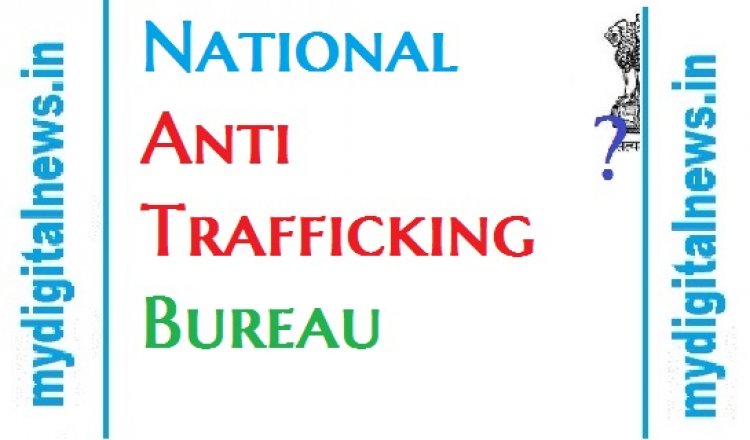National Anti Trafficking Bureau
Ministry of Home Affairs

The Government of India amended the National Investigation Agency Act, 2008 in 2019 to inter-alia include Section 370 and 370A of the Indian Penal Code in the Schedule of the Act. The NIA has been given the mandate to investigate cases of human trafficking, including those having inter-state, national and international ramifications. Further, the Ministry of Home Affairs (MHA) has taken the following initiatives for the safety of women:
i.The Criminal Law (Amendment) Act, 2013 was enacted for effective deterrence against sexual offences. Further, the Criminal Law (Amendment) Act, 2018 was enacted to prescribe even further stringent penal provisions, including the death penalty, for the rape of girls below the age of 12 years.
ii. Emergency Response Support System provides a pan-India, single internationally recognized number (112) system for all emergencies, with the computer-aided dispatch of field resources to the location of distress.
iii. To promote the use of technology to aid smart policing and safety management, Safe City Projects have been sanctioned in eight cities namely, Ahmedabad, Bengaluru, Chennai, Delhi, Hyderabad, Kolkata, Lucknow and Mumbai in the first Phase. The projects have been prepared by State Governments taking into account the need for identification of hotspots for crimes against women for the development of critical assets in urban areas including infrastructure, technology adoption and capacity building in the community through awareness programmes.
iv. A cyber-crime reporting portal was launched on 20th September 2018 for citizens to report obscene content.
v. MHA launched the “National Database on Sexual Offenders” (NDSO) on 20th September, 2018 to facilitate investigation and tracking of sexual offenders across the country.
vi. MHA has launched an online analytic tool “Investigation Tracking System for Sexual Offences” to monitor and track time-bound investigation in sexual assault cases in accordance with Criminal Law (Amendment) Act, 2018.
vii. MHA has notified guidelines for the collection of forensic evidence in sexual assault cases and the standard composition in sexual assault evidence collection kits. To facilitate adequate capacity in manpower, training and skill-building programmes have been undertaken for Investigation Officers, Prosecution Officers and Medical Officers.
viii. In order to improve investigation, MHA has taken steps to strengthen DNA analysis units in Central and State Forensic Science Laboratories. A State-of-the-Art DNA Analysis Unit has been commenced in Central Forensic Science Laboratory, Chandigarh on 23rd December 2019.
ix. MHA has released Rs 200 crores to States/UTs for setting up and strengthening of Women Help Desks in police stations and Anti-Human Trafficking Units in all districts of the country.
x. Further, a national level communication platform - Crime Multi-Agency Centre (Cri-MAC) was launched by MHA on March 12, 2020. Cri-MAC facilitates the dissemination of information about significant crimes, including human trafficking cases, across the country on a real-time basis and enables inter-State coordination. The coordination mechanism available to Police Officers in all States and UTs through Cri-MAC is an efficient and fast enabling-tool for sharing information in a safe and secure manner, which helps in locating and identifying the victims as also in prevention, detection and investigation of crimes.
In addition to the above measures, MHA has also been issuing advisories to States and UTs, from time to time, to deal with crimes against women, which are available at www.mha.gov.in.
This was stated by the Minister of State for Home Affairs, Shri G. Kishan Reddy in a written reply to a question in the Rajya Sabha today.
What's Your Reaction?










































































